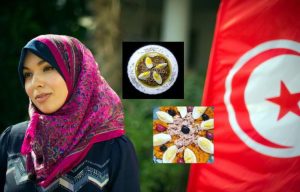The Turkana are a Nilotic people native to the Turkana District in northwest Kenya. Turkana number 856 thousand, or 2.5%, of the Kenyan population, making the Turkana the third largest Nilotic ethnic group in Kenya. We look at the rite of initiation for the boys.
A boy cannot become an adult, until he undergoes the rite of initiation. Before this ‘rite of passage’, he may not wear the traditional mud cap, possess animals, sit in a circle with the men, kill ritual animals, possess a spear, sing or dance for a bull, raid enemies or get married. If he were to die before initiation, he does not receive any burial.
Once the boy is old enough, the father tells the group he belongs to that he would like his son to be initiated during the next rainy season. Other parents of the same group express their desire to have their sons initiated and the question is brought to the notice of the elders during a meat-feast or an informal meeting. It is the duty of an elder of a different age group to fix the time and place of the ceremony.
The elders who wish to be the ‘godfathers’ of the future adults inform the fathers of the boys. They need not be relatives of the boy’s family, as long as he is on good terms with them.
The father and the godfather prepare the feast together. The father offers an ox or a male goat; the godfather prepares the gifts to be handed over to the boy once he has completed the initiation: a selection of animals, a spear, some blankets and some beads.
The boy also receives some chains of coloured stones that he will wear around his neck and on his thighs, together with new knives, bracelets, shoes and earrings. The mother of the boy and the wife of the godfather prepare the food for the ceremony, using cooking oil, sorghum, maize porridge and fruit, and a ritual hide.
On the appointed day, the elders gather under the ‘men’s tree’. Women are not allowed to take part in the ceremony. The godfathers and the boys gather in another place and from there, they move towards the elders dancing, singing war-songs, and crying out the name of their favourite bull. The mothers bring oil and milk, but keep their distance.
While the elders sit around in a circle, an akiriket, to chat, other younger men cut green branches to be used as a ‘dish’ for the roasted meat and gather firewood. Someone brings in a wooden container, atuba, of tobacco for the elders. In hierarchical order, they all take a pinch, following strictly the rules of the rite of akimatang etaba, which is chewing and sharing.
After this rite, the firstborn son of the first wife of the oldest elder takes his spear, approaches the the animal offered for the sacrifice – it must be standing, facing the east – and thrusts his spear first into its right flank, then into the left one, aiming at the heart. The animal collapses to the ground and is soon butchered. All the blood is collected in a container.
At a certain point, the oldest of the elders and the godfathers begin to smear the boys with the chyme of the sacrificed animal, blessing them with a litany of good wishes. “Become wealthy… Live a long life… May you always have a donkey to carry you… May God grant you children…”.
Chunks of roasted meat, starting with the apol and the liver, are now placed, on green leaves, in front of the elders. The eldest man tastes the meat and passes it to those being initiated. They put the received piece in their mouths, chew it and then spit it onto their own chests, as a sign of self-blessing.
Somebody now brings into the circle the right leg of the animal. He cuts off the meat and places it on the green leaves at the feet of the elders. At the end, he hands the bones to boys, together with two stones. One after the other, the boys take the stone and begin to smash the bones into pieces, thus repeating the very gesture their mother did, with a bone of a goat, when they were born. This rite symbolises the end of their youth and the beginning of their new life separated from the the family. They are now considered adults. There is no circumcision in the Turkana initiation ritual.
With solemnity, the young men now take their spears, stand in a line before the elders and show the weapons to their godfathers, they have become warriors.
The newly initiated can now leave the akiriket and move to the houses of their respective godfathers. They are reminded of a taboo – they cannot marry the daughters of their godfathers, since they have now become brothers and sisters. So, let them behave properly while staying in the new family. When sill on the way, each godfather asks his ‘son’ to break a green branch. This is a very symbolic act: young wives do so during the rite of their marriage.
On reaching home, the boy enters the hut of the first or last wife of the godfather. He sits on a ritual hide and is anointed.
During the first days spent in the homestead of the godfather, the young man will have to behave like a child, that is marvelling at everything and asking the names of the commonest things, such as domestic animals, plants, hills or wells. He spends the first night sleeping with the godfather on the same hide. The following morning, he is stripped naked, as it is done with a new bride or a new widow. The person he was yesterday is now ‘dead’ and everyone tries to get something of what he owned as a boy.
The new man, now, is given a mud cap, a new pair of sandals, a blanket, a spear, a staff and a stool. At the end, the godfather ties a sinew to his forehead and tells him that, for as long as he stays in his home, he will have to follow him wherever he goes.
After five days, the godfather and other members of his family accompany the young man to his paternal home, bringing along a number of goats – these are the first real and true property of the newly initiated.
It is the boy’s mother to welcome the ‘reborn son’ home, by sprinkling him with water, thus making him ‘acceptable’ in his native home. Without this water, he would represent a danger both to the members of the family and to the animals. Still dripping with water, he brings the goats he has received from his godfather to where those of his father are.
Now everybody is invited into the hut of the boy’s mother. The godfather and the young man sit together on a ritual hide and eat bread, drink oil and milk. A goat is killed in their honour.
After the banquet, the godfather and his people may go home. This ritual breaks completely all ties between the young man and his father and the paternal dwelling. A necessary separation, if the young man wants to start his own family and to possess his own animals.








